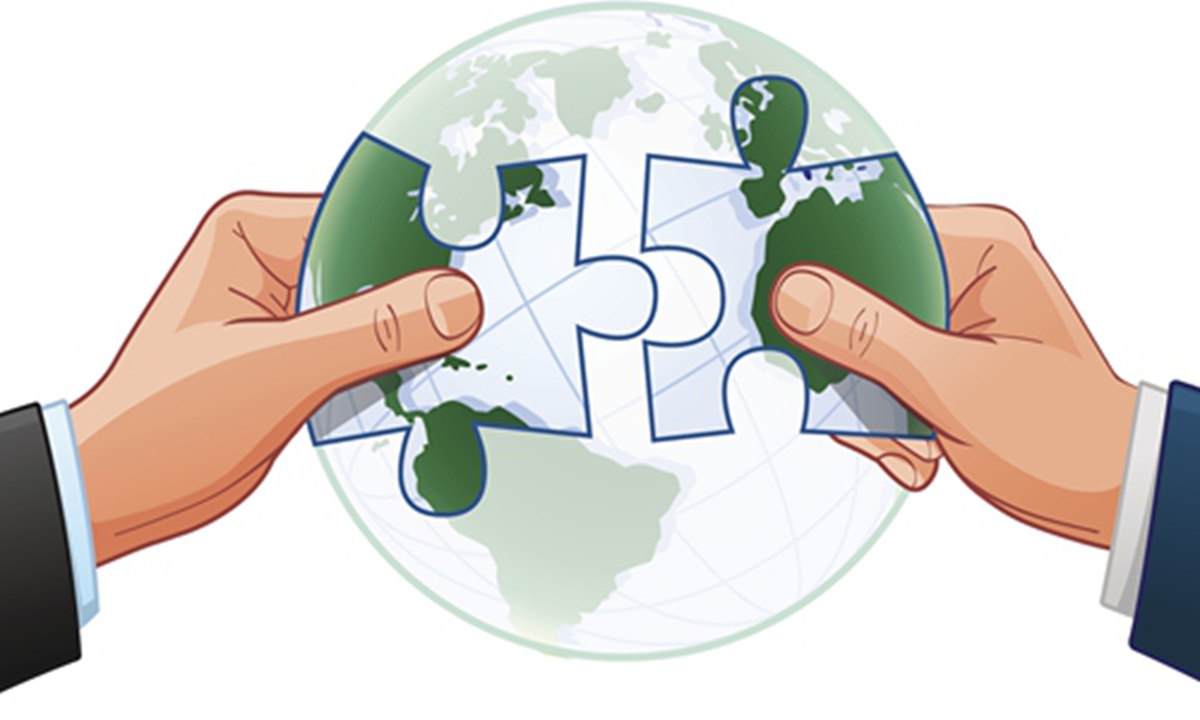Globalization can’t go back to the past, nor can the US
By Chen Fengying Source: Global Times Published: 2020/11/11 21:09:46

Photo: VCG
Discussions over the possible policies of the new US administration have begun rising. Americans are still internationalists at heart, and they don't support isolationist foreign policy, Robert Zoellick, a former World Bank president, wrote in a recent opinion piece.As the US transitions to the next administration, will it come back to the multilateral mechanisms? How will the current rivalry between globalization and de-globalization in the world change?
For starters, economic globalization is an objective reality and historical trend. Although unilateralism, protectionism and isolationism are on the rise in some countries, causing headwinds and undertows against economic globalization, the trend of globalization hasn't been reversed. This is because globalization is an objective demand of growth of production and an inevitable result of technological progress.
The drivers for globalization have changed from governments to multinationals. The process has fully turned to the direction of technology digitization, interconnection and intelligence. The Internet of Things (IoT) supported by 5G, big data and cloud computing technologies provides closer links and wider coverage than internet. In the future, the question will not be about whether a country wants to be interconnected or not, it will be about whether individuals or countries can realize development by staying isolated. We believe that the globalization trend won't be affected by any country's policies.
Secondly, the new US government is likely to push the diplomatic policies toward the direction of "multilateralism + national interests." The World Trade Organization (WTO), World Health Organization, and UNESCO are all indispensable mechanisms for global governance, and also where the US can play its role in international affairs.
Climate change is a topic closely followed by the US Democrats. Resuming cooperation with the WHO in the fight against COVID-19 is also expected to be a top priority of the next government. Therefore, the new US government is likely to come back to multilateral mechanisms which the Trump administration abandoned.
However, globalization can't go back to the past, nor can the US. US political elites' attitude toward globalization formed in the past four years will also have influence on the next government. Despite disputes on a slew of issues, the new government has no reason to abandon the approaches of the current government that have delivered results. In general, systematic and institutional policy adjustments based on the former government's actions is the more likely course the new administration will take to further US interests.
The world is more likely to see a US government that comes back to multilateral mechanisms but will do less that it says to take responsibilities in global affairs.
In terms of climate change, it's widely expected that although the US will come back to global cooperation, as a developed country, it may not be willing to sacrifice its interests to take responsibilities.
In trade, the new US government is also not expected to draw out of the WTO, but it is more likely to push WTO reform in the direction that serves US interests.
The author is the director of the World Economy Institute of China's Institute of Contemporary International Relations. bizopinion@globaltimes.com.cn
Posted in: EXPERT ASSESSMENT